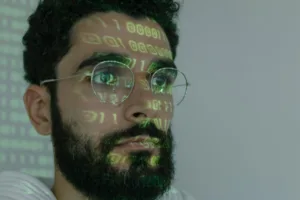
OpenAI, the organization behind ChatGPT, has abandoned its plan to restructure as a for-profit entity, maintaining its nonprofit governance model. The decision follows regulatory scrutiny, legal challenges from Elon Musk, and internal disagreements over mission alignment. This reversal ensures the nonprofit board retains control, prioritizing AI safety and public benefit over investor returns.
Key Developments and Financial Impact
OpenAI’s decision to halt its for-profit transition stems from multiple pressures. Regulatory bodies in California and Delaware investigated compliance with nonprofit laws, while investors pushed for restructuring to secure returns. The move also affected a $40 billion funding round led by SoftBank, which was contingent on the for-profit conversion by December 31, 2025. The failure to meet this deadline reduced the funding to $30 billion, with SoftBank’s stake dropping from $30 billion to $20 billion. Microsoft’s $10 billion commitment remained unchanged.
Legal challenges played a significant role in OpenAI’s reversal. Elon Musk, a co-founder of OpenAI, filed a lawsuit to block the restructuring, arguing it violated the organization’s original mission. Former employees supported Musk’s case, citing concerns about mission betrayal. The nonprofit board’s retention of control ensures continued focus on AI safety, but the financial implications highlight the tension between mission alignment and investor expectations.
Operational and Strategic Shifts
OpenAI’s leadership has adjusted its operational focus in response to the decision. CEO Sam Altman has shifted his attention to research, while COO Brad Lightcap has taken on expanded oversight of daily operations. Despite the funding reduction, OpenAI projects its revenue will triple to $12.7 billion in 2025, reflecting strong demand for its AI products.
The organization’s collaboration with SoftBank and Oracle, part of the Stargate joint venture, remains intact, though the reduced funding may impact future initiatives. The decision to maintain nonprofit governance aligns with warnings from experts like Geoffrey Hinton, who cautioned that profit motives could undermine AI safety. Activists, including Dolores Huerta, have celebrated the move as a win for ethical AI development.
Relevance to Security Professionals
OpenAI’s governance model has implications for AI security and ethical development. The nonprofit structure may reduce incentives for rapid commercialization, potentially mitigating risks associated with poorly vetted AI deployments. However, the reduced funding could limit resources for security research and robust testing frameworks.
For organizations leveraging OpenAI’s technologies, this decision underscores the importance of monitoring governance changes that could affect product roadmaps or security commitments. The legal and regulatory scrutiny faced by OpenAI also serves as a case study for other AI developers navigating compliance and mission alignment.
Conclusion
OpenAI’s reversal on its for-profit transition reflects broader tensions in the AI industry between commercialization and ethical considerations. The decision preserves the organization’s nonprofit mission but comes with financial trade-offs. As AI continues to evolve, governance models will play a critical role in shaping its development and security landscape.
References
- “OpenAI abandons plan to restructure as for-profit entity,” The Washington Post, May 5, 2025.
- “Experts warn of risks to OpenAI’s nonprofit integrity,” TIME, May 5, 2025.
- “OpenAI funding reduced by $10 billion after for-profit delay,” CNBC, Mar. 31, 2025.
- “OpenAI maintains nonprofit control amid investor pressure,” The Register, May 5, 2025.
- “Activists applaud OpenAI’s nonprofit decision,” WIRED, May 5, 2025.
- “OpenAI projects $12.7 billion revenue in 2025,” CNBC, Mar. 26, 2025.
- “Former OpenAI employees support Musk’s lawsuit,” CNBC, Apr. 11, 2025.




